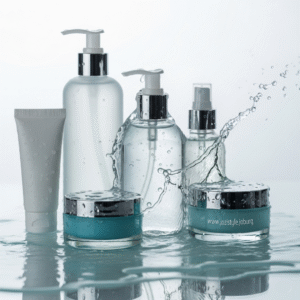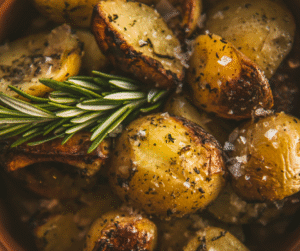Cold Season Survival: Vitamin D, Vitamin C, Zinc and Common Sense

Smart, targeted supplements can help fill seasonal gaps, support immune resilience and ease winter blues, but they must be chosen carefully, used temporarily when appropriate, and discussed with a healthcare professional before you begin. My tips below are practical, and rooted in personal experience, not miracle cures.
Do you reach for supplements as soon as the temperature drops, or do you treat pills like a last-resort indulgence? I’m guilty of both. I recently had a stubborn bout of laryngitis that reminded me how brittle the throat can feel in winter, and it forced me to get serious about what I pop when the skies turn grey.
Why winter changes the rules
Winter isn’t just a wardrobe problem. For many of us, shorter days and less sun reduce natural vitamin D production, and we spend more time indoors breathing recycled office air. That combination makes immune support more relevant, and it turns nutrition gaps into real vulnerabilities. Industry guidance now advises people to think about seasonally relevant supplements rather than assuming a “one pill fits all” approach.
nhs.uk
A note on evidence and experience: I’m not a doctor, I’m a harshly honest broadcaster who likes to try things and report back. Where I can, I will reference mainstream evidence, because readers deserve reliable context. When science is fuzzy, I’ll tell you it’s fuzzy. When my own experience lines up with the research, I’ll tell you that too.
The Essential Winter Supplements I Consider
Below are the supplements that consistently make my winter shortlist, along with why I bother, what the evidence says, and how I personally approach them.
Vitamin D — the sunshine vitamin
Why it matters, briefly: Vitamin D is central to bone health and has links to mood regulation, which is why it often comes up in conversations about the winter blues and seasonal affective disorder. For many, autumn and winter are the seasons to consider a daily supplement because natural production from sunlight falls away.
How I use it, in practice: I check in with my GP if I can, or at least consider a standard over-the-counter daily dose for the season, especially on cloudy Joburg weeks when I’m barely stepping out. I also try to eat vitamin D sources like oily fish and eggs. Don’t assume “more is better,” because vitamin D is fat-soluble and accumulates, so get professional advice if you suspect a deficiency.
Vitamin C — the old faithful
Why it matters, briefly: Vitamin C is a powerful antioxidant and supports immune cells. Trials suggest regular supplementation can shorten the duration of colds, though it doesn’t magically stop you catching one in the first place. In short, it’s good for resilience, not invincibility.
How I use it, in practice: When I feel a cold sneaking in, I increase vitamin C intake for a short burst, along with extra rest and fluids. This is anecdotal, but it’s the single seasonal habit I return to each winter. Again, talk to a clinician if you have kidney issues or take medications that interact with high doses.
Zinc — the throat’s small friend
Why it matters, briefly: Zinc lozenges or short-term zinc therapy, started early in symptoms, may reduce the duration of a common cold by about a day or two in some studies. Evidence is mixed and formulations vary, so it’s a cautious “maybe” with clear caveats.
How I use it, in practice: I don’t take zinc daily for months. If I feel a cold coming, I’ll use a zinc lozenge protocol for a few days only. Excessive zinc can cause harm, including interfering with copper absorption, so brief use under guidance is the sensible route.
Omega-3 fatty acids — for joints, skin and calm
Why it matters, briefly: Omega-3s have anti-inflammatory properties, and people take them for joint stiffness, skin health and cognitive support. The research is nuanced: benefits are clearer for some conditions than others, but the anti-inflammatory potential is well established.
How I use it, in practice: I prioritize dietary sources — sardines, salmon, pilchards — and use a high-quality fish oil supplement when I need extra support. Take omega-3s with a meal that contains fat to aid absorption, and choose products that declare EPA and DHA content rather than vague “fish oil” totals.
Multivitamins — insurance, with limits
Multivitamins can fill small gaps if your diet is inconsistent, but they are poor excuses for a poor diet. Use them as targeted insurance, not as a fast track to health. If you suspect a real deficiency, ask your clinician for blood tests, rather than guessing.
Food first, supplements second
If this blog had one rule it’s this: food first, supplements as helpful additions. Many of the nutrients people seek in pills are present in everyday foods.
Food sources I rely on: oily fish for omega-3, egg yolks and fortified milks for vitamin D, citrus and peppers for vitamin C, nuts and seeds and red meat for zinc, plus a dense winter vegetable stew for micronutrients and comfort.
Eating well reduces the need for aggressive supplementation, and it gives you a safety net when life gets busy.
Here’s where people get sloppy. Supplements are not regulated like medicines in many parts of the world, which means product quality varies wildly. Industry regulators do set rules, and independent testing bodies exist, but not all manufacturers submit to them. For that reason, third-party testing and recognised seals are worth paying for. The NIH and related consumer guidance explain how third-party verification can help you choose products that contain what they say they contain.
Office of Dietary Supplements
Quality, regulation and the hazard of “cheap is fine”
Supplements can help, they can also harm. Overdoses happen, interactions occur, and if you’re on medication, some supplements change how drugs behave. The common sense approach is:
- consult your healthcare professional before starting anything new, especially if you have chronic conditions, are pregnant, or take prescription medicines,
- avoid long-term megadoses, and stop if you notice adverse effects,
- prefer short, targeted courses when you’re using supplements to manage an acute symptom.
Regulatory bodies emphasise the need for consumer caution and clinician involvement, precisely because supplements can have real, measurable physiological effects.
My laryngitis story and practical hacks
My recent laryngitis taught me two things. First, your throat will tell you to take it seriously, and second, small practical actions matter more than heroic megadoses.
What I did, and what I recommend: rest the voice, stay hydrated with warm liquids, use lozenges and honey for symptomatic relief, consider short-term vitamin C and zinc at first sign, and be realistic about recovery time. I also doubled down on foods and supplements that support skin and mucosal health, because the throat is an external sign of internal resilience.
If you have chronic throat or respiratory issues, please see your doctor rather than relying on self-treatment.
I’m sceptical of miracle claims, and I hate aggressive supplement marketing that preys on fear. At the same time, I am practical. Winter makes me think about prevention, not panic. A considered approach to vitamin D, a pragmatic short burst of vitamin C or zinc when needed, and sensible omega-3 use when your diet lacks oily fish, that is my winter playbook.
Spend a little more on quality supplements if you can, invest in good food, and always, always consult a qualified clinician if you’re unsure. That’s not prudishness, it’s maturity, and honestly, it’s stylish.
Final practical checklist
✓ Get a quick check with your clinician if you can, especially if you’ve been symptomatic.
✓ Prioritise food sources first, supplements second.
✓ Choose third-party tested supplements when possible.
✓ Use zinc and vitamin C short term for colds, vitamin D as a seasonal consideration, and omega-3 for anti-inflammatory support.
✓ Don’t assume more is better, especially with fat-soluble vitamins or minerals.
What do you take in winter, JoziStylers? Do you have a product, a ritual, or a home remedy that actually helps you stay well and warm? Tell me in the comments.
Subscribe to JoziStyle, follow us online and listen to us on air.






